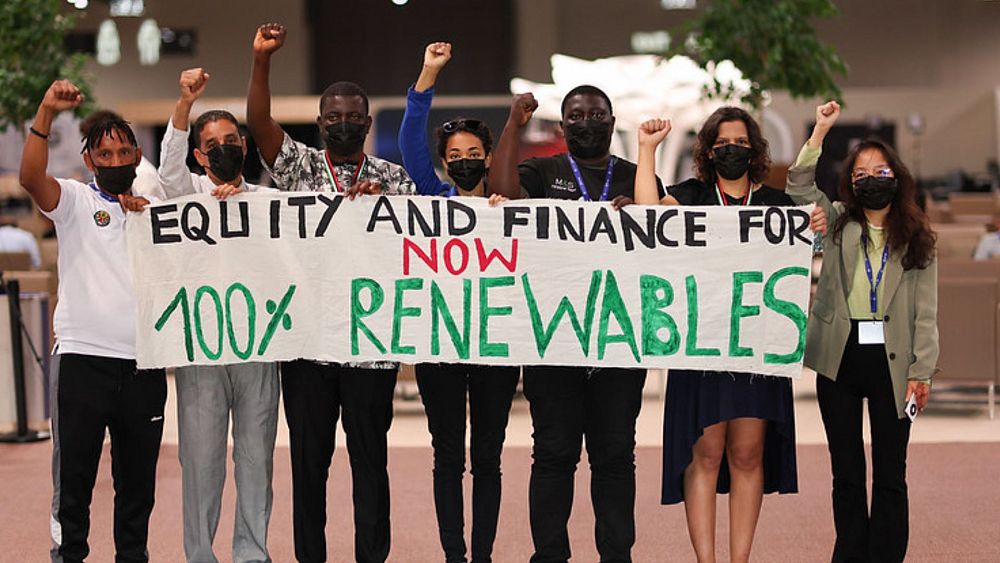UN officials and activists say negotiators have no time to lose.
Delegates at COP28 are running out of time to agree on how to cap planet-warming emissions and keep the worst of warming at bay.
Tomorrow is the official last day of the landmark climate talks, though COPs are often extended if countries can not reach consensus.
Over the weekend, there was heated debate about the future of fossil fuels.
Negotiations were being held up by several different language options about ‘phasing out’. Vanuatu’s climate change minister said yesterday that there are “small minority of countries blocking progress”.
EU climate chief Wopke Hoekstra heavily criticised the Organisation of the Petroleum Exporting Countries (OPEC) on Saturday after a letter from the group reportedly urged countries to reject a deal targeting fossil fuels.
“By many, including by me, that has been seen as out of whack, as unhelpful, as not in tune with where the world stands in terms of the very dramatic situation of our climate,” Hoekstra said.
‘Time to go into overdrive’
UN Secretary General Antonio Guterres is an outspoken advocate for urgent climate action. He returned to the summit today, saying it was “time to go into overdrive to negotiate in good faith and rise to the challenge.”
He said negotiators in particular must focus on the reduction of greenhouse gas emissions and climate justice.
He said the global stocktake – the part of talks that assess where the world is at with its climate goals and how it can reach them – should “phase out all fossil fuels” in order to reach the goal of limiting the rise of global temperatures to 1.5 degrees Celsius compared with pre-industrial times.
“We can’t keep kicking the can down the road,” Guterres said in brief remarks. “We are out of road and almost out of time.”
Sticking points for the global stocktake are along familiar lines. Many countries, including small island states and countries in Europe and Latin America, are calling for a phase-out of fossil fuels, responsible for most of the warming on Earth. But other nations want weaker language that will allow oil, gas and coal to keep burning in some way.
Lisa Fischer, program lead at E3G, said there is likely to be loophole language – the world “unabated” before fossil fuels for example – that leaves options for burning of oil and gas but somehow capturing the pollution, something that is tricky and expensive. Key will be how “unabated” will be defined, she said.
‘I win, you lose is a recipe for collective failure’
Another official who is deeply involved in the talks, Simon Stiell, the executive secretary of the UN Framework Convention on Climate Change, spoke to the press this morning.
He said “none of us have had much sleep, so I’m going to be incredibly brief in my remarks.”
He told journalists that the “climate wolves” remained at the world’s doors as negotiations reach their climax at the summit.
“We do not have a minute to lose in this crucial final stretch and none of us have had much sleep,” Stiell said. He added that “the areas where options need to be negotiated have narrowed significantly,” in particular how to reduce planet-warming emissions and the “transition with the proper means of support to deliver it.”
When asked directly if it was a possibility that negotiators could leave Dubai without a deal, Stiell did not deny that could happen.
“One thing is for certain: I win, you lose is a recipe for collective failure,” he said.








